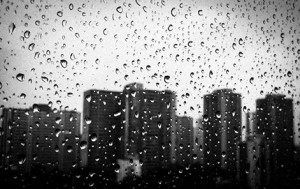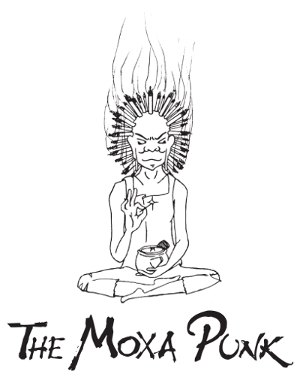Posts Tagged: winter health
Learn how to Cup and Scrape
 Join me in the cosy, ecologically friendly warmth of the Van Raay Centre at CERES to learn how to cup and scrape. We Chinese Medicine practitioners use these methods to treat a range of conditions, but historically they are folk medicine practices used by regular folk. So this workshop is intended to teach people who are not health professionals how to use these methods to keep themselves, their friends, and family well.
Join me in the cosy, ecologically friendly warmth of the Van Raay Centre at CERES to learn how to cup and scrape. We Chinese Medicine practitioners use these methods to treat a range of conditions, but historically they are folk medicine practices used by regular folk. So this workshop is intended to teach people who are not health professionals how to use these methods to keep themselves, their friends, and family well.
Come dressed so that you can expose your shoulders and upper back.
Just 16 places for this one, get in quick.
- When: Saturday July 1, 10am til 1pm.
- Where: CERES Environment Park, Van Raay Meeting Room 2.
- Price: $50
winter

The three months of winter,
they denote securing and storing.
The water is frozen and the earth breaks open.
Do not disturb the yang [qi].
Go to rest early and rise late.
you must wait for the sun to shine.
Let the mind enter a state as if hidden,
as if shut in
as if you had secret intentions;
as if you already had made gains.
Avoid cold and seek warmth and
do not [allow sweat] to flow away through the skin.
This would cause the qi to be carried away quickly.
This is correspondence with the qi of winter and
it is the Way of nourishing storage.
Opposing it harms the kidneys.
In spring this causes limpness with receding [qi],
there is little to support generation.
– Huang di Nei Jing Su Wen trans. Paul Unschuald
South Asian paintings of winter usually show snow. This photograph of winter rain in Toronto is more appropriate for the southern Australian winter.
Chinese literature discusses cold, dry winters. Melbourne’s winter months are the coldest of the year, but are relatively mild and quite wet, with extended rain periods.
Despite this difference with the cosmic flow of yin and yang in the Middle Kingdom, Chinese Medicine can still guide us on how to stay healthy in winter.
As the Su Wen outlines above, we should stay indoors and avoid the cold. Most of us will welcome the advice that we shouldn’t get out of bed until the sun comes up. Winter is a time to reserve and store and some have interpreted the rather cryptic third stanza above as applying this to sexual activity, but the ninth century commentator and editor Wang Bing commented ‘All this to say one does not wish to go out needlessly lest one is struck by cold’ (Unschuld p. 49). Those that like to snuggle up with a good friend in winter would prefer this interpretation.
We should avoid exercising outdoors after dusk. Young people with exuberant yang may get away with evening footy training and the like, but they should avoid wearing cold, sweaty clothing when they are not active, and should take a hot shower or bath as soon after training as they can.
Winter is the time to eat warming, flavoursome foods and to nourish the shen organ-meridian system linked to the kidneys. Wong’s ‘Four Seasons’ suggests: anchovies, bay leafs, capers, chestnuts, chicken, coriander, dill, fennel, leek, mussels, mutton, nutmeg, pine nuts, rosemary, spring onions, prawns, sweet potatoes, and walnuts. Trout and salmon are warm-natured fish. Eat stews, soups and curries, particularly of flavoursome foods with plentiful qi such as mutton or brisket. Stocks and soups from long simmering of bones are great. As well as eating warming foods we should moderate our consumption of cooling foods. Winter is not the best time to eat a lot of raw foods, salads, sushi or icecream, tofu should be cooked or even fried.
Winter is also time when it’s thought to be healthy to enjoy a little alcohol. Chinese will drink rice wine that has had warming herbs steeped in it, but regular wine is warm enough to help us through winter. Wong says that it ‘enlivens the spleen, warms the digestive system, expels wind and cold, promotes circulation of the qi and blood, improves appetite and dispels fatigue.’ But alcohol would kindle any fire in the body, and red wine seems particularly unhelpful to people who overheat at night. The alcohol in beer is warming, but beer can bring dampness. Dark beers warm the yang more than light ones, and some beers are brewed with orange peel, cardomon, and other spices that can warm the digestive system and reduce dampness.
At the first signs of having caught a cold simmer two slices of ginger with three spring onion stalks for twenty minutes and drink the broth.
A warming nourishing dish from Wong that doesn’t use meat:
stir-fried daikon radish with carrot:
Stir-fry finely diced daikon radish with carrot until al dente and slightly browned. Add a handful of chopped shallots and cook for another minute. Add soy sauce and black pepper to taste.
Wong says that the carrot supports digestion and the radish clears damp that hinders digestion.
